they stole our bodies: work in Israel
by Mikhael Magid
(26/2/19: some detailed comments – critiques and elaborations – have been added to the bottom of this page in the comments box)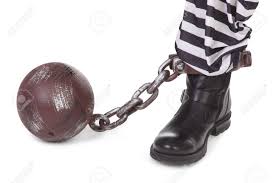
In the early 1990s I found myself in Israel. For several years I worked in Israeli enterprises — washing dishes in restaurants, cleaning streets and parks, washing buses. I was an unskilled worker. It turned out to be something completely new for me, although in Russia I managed to work for several months at the post office.
At that time more than a million Jews left the countries of the former USSR, experiencing political and economic collapse caused by the destruction of the Bolshevik state. Most wanted to go to the US and Germany, but the Israeli lobby blocked this route, using all its influence on American and German politicians. The warring State of Israel needed more labour force and soldiers, as well as new Jewish immigrants for its demographic confrontation with the Arabs.
Israel used Russian scientists and engineers to develop the high-tech industry. Most of the schools in Israel are bad, and they do not have too many universities and research centers. Instead of investing heavily in education, it has proved more profitable to import cheap, highly skilled labour. Russian engineers and mathematicians became the engine of the presently famous Israeli high-tech. The Russian state has never been able to effectively use huge intellectual resources: this was the case in the Soviet Union and in post-Soviet Russia.
However, there were too many Russian specialists in Israel. According to Israeli economist Boris Dubson, about half of them had to become garbage cleaners, factory workers or join the ranks of the unemployed. They perceived what was happening as a catastrophe. In schools Russian children were systematically bullied while their parents were bullied by Israeli owners and managers in the workplace. Israelis have noticed that “Russian migrants have fake University diplomas”, “their women are whores who slept with Goys [non-Jews]” and “after a million Russian Jews came to the country, the streets became much cleaner, as Russians began to clean up local garbage”.
Many Israelis hated Russians. Especially some Jews from Morocco, who just became crazy. Representatives of the middle urban layer of Moroccan society, jewelers, skilled artisans and traders, they came to Israel in the 1950s and were shocked when they were discriminated by the whites at the top of the Zionist state and business (Ashkenazi and Sabra Jews) over the years. However, some of them became small capitalists and managers. Now they have seen Russian, Belorussian, Ukrainian and Lithuanian Ashkenazi Jews, who are considered even lower than the Moroccans themselves! It was possible to get sadistic pleasure and to force “whites” to pay for everything that had happened to the Moroccans. The Israeli petty bourgeoisie felt they were in a festive atmosphere: Russian white-skinned Jews with teaching, doctor and musician diplomas working for their new owners for a pittance, cleaning up trash in the streets, and even being the target of bullying.
The Israel I saw was a sea of a variety of ethnic hatred. However, these ethnic groups were, to some extent, united by the hatred and contempt they felt for the Arabs.
But there is an interesting fact: elderly people from Morocco behaved differently. They did not have Israeli impudence (“chutzpah”)… They are the usual friendly middle Eastern elderly. I do not know the answer to “why the hell did they leave Morocco?”.
…I had no university education and the work of a garbage man itself did not seem humiliating to me.
In the heart of the world
We worked for 8 hours a day, but the road from home to work and back took another 2 hours and bosses did not pay for it. Sometimes the working day lasted 10 or 12 hours. Managers promised to increase payments for additional time but sometimes we did not receive payment for it at all.
Work under the scorching Middle East sun is not as difficult for the body as it is tiring for the soul, although the heavy red-hot sunlight was falling on my head, causing pain and irritation.
But worst of all was the rudeness of the Israeli bosses, especially in one of the companies run by a former military man.
The working class of Israel was very diverse. Russian Jews and Russians were a significant part of it. But Palestinians from the Israeli-occupied territories, Bulgarian Jews and illegal migrant workers from Eastern Europe worked with us. I didn’t see black Ethiopian Jews. This unfortunate community experienced terrible suffering when they moved to Israel during the so-called “Moshe operation” (Moses). Later, already in Israel, many were victims of attacks by the Israeli police.i Their community is considered to be one of the poorest in Israel, but I did not meet them among the workers.
Sometimes we worked together with Israeli workers from poor families of mizrahim (Eastern Jews) from Morocco or white Jews (ashkenazi) with mental problems. There were also Israeli criminals who were obliged to work with us. I remember a muscular Arab woman Suzy (she robbed a Bank) and her young Jewish mistress.
This was the world in which I lived and worked for several years. And this world has affected all my ideas about society and politics.
I was 20. I came to Israel as a staunch supporter of liberal democracy. I believed the totalitarian system of the USSR was terrible, while parliamentarism and the multi-party form the conditions for real democracy. I was sure the market economy created comfortable conditions for people. It turned out to be shit. That is, I had no reason to think better about the USSR, which I remembered very well. But the Western or Israeli system had nothing to do with my ideas. Very quickly all my beliefs were destroyed.
It was not only about “people participating in elections once in 4 years, have no real power”. The fact that politicians and oligarchs decide everything, and ordinary people make no
decisions, became clear very quickly. But that’s not even the point.
More than half of my time was taken up with monotonous work. We, the workers, were in a state of absolute dependence on the managers. They were constantly insulting us, they could fire us at any moment. They followed us closely, and most of them did nothing at all. They were filthy parasites. We cleaned streets and rooms, planted flowers, built houses, worked in factories. We were the foundation of the system and, at the same time, we were powerless.
Monotonous work destroyed the mind and deprived the body of strength. When I returned home, I only had enough strength to sleep. But then I would see the work during my night’s sleep! It was the hell impossible to get out: even my dreams ceased to be a vacation and turned into a continuation of work.
What kind of freedom could we talk about in such conditions, what kind of democracy, what nation state? Everything was empty! Nonsense which had nothing to do with real life. We’d been robbed. They’d stolen our bodies. They took away our minds and our bodies, which didn’t belong to us anymore.
We learned reality. We were in the heart of the world, and that heart was corrupt.
Most of the people on the planet lived and still live that way. In this case, what do liberals or so-called national liberation movements say? All their ideas are either toys for wealthy people or lies that have no connection with the real problems of the majority.
Hate
We hated the bosses. Hatred overwhelmed us. But hatred was paralyzed by fear. We rarely argued with managers. We were afraid of being fired. Therefore, another channel had been opened for hatred directed at other ethnic groups like Arabs, Orthodox Jews, etc. I am still convinced that such sentiments are not created by the media, although the elite need the media to strengthen and redirect it. But the ethnic hatred I saw was merely the result of displacement and transfer of class hatred, its safe substitute. Palestinians and Bulgarians were exactly the same victims, but it was more convenient for many Russians to turn a blind eye.
It is a paradoxical fact: class hatred transferred to other workers, turned into nationalist hatred, strengthened the power of management. The ethnic and racial divide had paralysed the collective activity of the workers. The more our hatred for managers grew, the more irritation against other workers grew.
I think this transfer was and remains an important method for the psychological adaptation of workers to capitalism. The system survives thanks to national hatred, so I do not believe in hypocritical political correctness.
Looking for a way out
But then where is the exit? Consciousness was looking for it. The Soviet Union just replaced one boss with another. Lenin put the state director in the place of a private owner, but he did not destroy the factory dictatorship of management. Perhaps real freedom is the power of the working assembly and the self-governing? I was interested in the experience of Polish Solidarity/Solidarnosc 1980-1981. It opposed both the Leninist system and capitalism. 10 million workers and specialists of the largest factories supported the idea of self-management for labor collectives.
Fortunately, I was lucky. I called the boss a “bastard” and got fired. I got a job at a new place that paid less, but my new boss was an Arab. His name was Nidal. The first thing I told him: I felt a deep aversion to the Zionists, and if he thinks I support those who attack the Arabs, he is wrong.
Nidal never met Jews with such ideas. He was shocked. He took me to a small clean Park, which turned into my permanent workplace. There was absolutely nothing to do. I sat in the shade (a trash can and a broomstick stood next to me) and read books: the history of Polish Solidarity, the history of Ancient Greece (I was interested in the direct democracy of Polis), the history of the East, where I hoped to discover the roots of despotism, the works of Fromm and Marcuse…
However, I was also interested in the idea of inner liberation from the nightmare. Maybe this life is hell? Maybe the world is arranged in such a way that the body cannot be released, but you can give peace and freedom to the soul? So I read works on the history of art, Sermons of Maester Eckhart, and especially books of an Indian philosopher and yogi Aurobindo Ghosh.
Maybe my own path had little to do with many of the modern anarchists. One of the creators of impressionism, the anarcho-сommunist Camille Pissarro, the pre-Raphaelites along with libertarian socialist William Morris are right: Art should bring us the harmony and beauty lost by capitalist civilization.
For example, I can’t stand punk or much of modern painting. This life is a hell of disharmony, enmity and pain. Painting and the music of the Renaissance or earlier Baroque music were trying to treat the minds of people. I can never understand why I need copies of chaos and disgust in art when all this shit is already around me in my everyday life. The visions of William Morris and polyphony of Thomas Tallis are as much a salvation to me as the social revolution.ii
Uri Avneri
I was also interested in the critics of the capitalist system: Israeli leftists and the anarchists. Both became a disappointment.
I remember Uri Avneri, one of the fathers of Israel. A Jewish fascist who once sympathized with the Third Reich, he later became a leftist and a supporter of peace with the Palestinians. He broke with fascism.
He spoke against the Israeli occupation, and for the new “Gush Shalom” peace movement.
Avneri supported withdrawal of the Israeli army from Gaza and the West Bank.
He died recently. I also remember how he told funny things about different people who took part in the creation of the state of Israel: what someone said, how another one drank vodka… But now I don’t remember anything.
I didn’t support the occupation. I had nothing against the Palestinians. But all this had nothing to do with the reality in which I lived and could not change it.
SF note (added 26/2/19): Although this comment about Avneri is fairly neutral, it’s remiss to not be critical of this guy. As an Israeli wrote in point 8 in the comments box below: “Avneri was a despicable leftist intellectual, politician, magazine/tabloid editor and an admirer of Arafat and the PLO.”
Anarchists
The biggest disappointment were the Israeli and later Western anarchists. Theoretically, anarchism means fighting for direct workers democracy by methods of direct action. At least that’s how Bakunin and Kropotkin saw it. It is not necessarily a violent action, it may even be non-violent in most cases, but it is always an action directed against businessmen and business women and against state principles and orders. Bakunin’s “revolutionary gymnastics” aims to develop a mass psychology of the workers, based on the rejection of state law and the ruling class. Once in the past anarchists more or less corresponded to such ideas. But…
The most pleasant of them was a Hungarian Jew Toma Schick. He ate rotten vegetables, which were given to him in shops by traders, and, it seemed, did not work anywhere. He called himself a pacifist. All this looked a little unpleasant to me, although I fully recognize the right of people to lead such a way of life. But he was one of the few non-nationalists I met in Israel, and I realy liked that. In addition, he was an extremely intelligent man who knew a lot about Israeli society. Toma Schik helped young people to avoid military service and helped many, explaining what they could tell officials. It was really helpful.
One day, seeing in my hands the book of Aurobindo Ghosh, Toma burst into criticism: ”Perhaps this man was a great revolutionary, but went into mysticism, it’s wrong.”
A well-known anarcho-сommunist Ilan Shalif lived in Israel but I did not know about this. Unfortunately Toma didn’t tell me anything about him.
Much later Toma returned to Hungary. As I heard he was killed in a traffic accident.
But most anarchists were punks or supporters of some subcultural movements: disgusting “music” and anti-fascism. One day they fought at a rally with right wingers, then they were arrested by the police, and I have seen one of these young people, bursting into tears, giving evidence to the police.
Once more. You have problems. You don’t know how to solve it. Your life is terrible. Your work is hell. Your boss is a creature who should not exist. But you heard that Bakunin rejected bosses and advocated a society based on self-government. You came to the anarchists, and some strange guy there suddenly says:
– Let’s go fight with that man! I have to break his nose.
– Why?
– He’s a rightwinger!
– What?! What the hell is that? What does that have to do with my problems?
Many of the Western anarchists I met later were people of subcultures iii. Some others were supporters of trade unions.
Trade unions
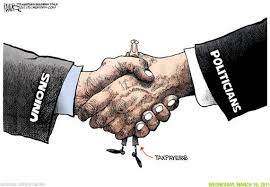 I’ve seen unions. Some of my work colleagues, privileged (in salary) Israeli bus drivers, were members of the Union. The Union provided them with some benefits, which, however, did not make them owners. We, workers who cleaned buses, were not invited into the Union. They, holding on to their privileges, looked upon us as their personal servants, though they were workers too.
I’ve seen unions. Some of my work colleagues, privileged (in salary) Israeli bus drivers, were members of the Union. The Union provided them with some benefits, which, however, did not make them owners. We, workers who cleaned buses, were not invited into the Union. They, holding on to their privileges, looked upon us as their personal servants, though they were workers too.
One day, an elderly driver, a Polish Jew, was fired. This man was very nervous. Then my colleague, the cleaner of the bus, a young Bukharan Jew Sholom, expressed his support. The reaction followed immediately. Choking with rage, the Israeli unionist yelled: “Who are you to talk to me? What can you understand about my job?!”
Let me give you another example from Russia. I remember the strike of railway workers on the “Yaroslavl direction”. There was a group of drivers at the station, striking members of the Union (to be fair, I want to add that among them there were those who officially did not belong to the Union). On another platform a bunch of migrant workers in orange uniform (Uzbeks or Tajiks) had gathered. Some of them sweeping the station. They were trying to figure out what was going on. Members of the Union did not even think to invite them to participate in the strike, to call for a meeting held at a distance of 50 meters.
It must be said that some basic cells of this trade union were preparing a strike by radical methods, threatening to potential scabs. However, the leadership of the trade union faced pressure so it ended the strike the same day it began.
Trade unions are unable to eliminate capitalism.
First, they are loyal to the laws written by the oligarchs, and constantly refer to these laws. A special group of privileged negotiators and lawyers is at the head of any trade union. This
privileged layer exists due to contracts and litigations between trade unions and business so they are not interested in a radical change of society.
Second, trade unions can only provide some privileges to certain categories of workers, pushing others away. The Russian revolutionary (s.r.-maximalist) Gersh Nestroev (Tsypin) wrote in the early 20th century that unions do not have the dominant socio-revolutionary ideas, because they are always open to those who only put forward the economic aims of the struggle. Such people are willing to compromise, regardless of the interests of other workers belonging to other professional and/or ethnic groups iv.
Trade unions create castes, making a deep split in the working class. As in ancient India the higher castes are willing to enter into a contract with the kings.
Recognition
Much later I learned that there were other social movements. I was struck by the history of the anarchists of Bialystok in 1904-1908. These people created a strong organization of Jewish and Polish workers, organized hundreds of illegal strikes and eliminated the most brutal fanatical bosses. So they tried to prepare society (psychologically and organizationally) for social revolution. At the same time they were campaigning for their ideals, a Golden age of self-government on Earth. But they, unlike the Bolsheviks, never tried to become the new bosses of the workers v.
I was equally struck by the history of the workers ‘ Councils of Budapest (1956): labor collectives occupied the largest factories and created self-government there (such an elected Council was uniting specialists and workers of all categories, not only people of a certain profession).
Maybe the way out of capitalism is provided by a combination of the first and the second. But that’s another story.
———————————————–
Footnotes
The first 2 footnotes are by SamFanto, the rest are from the author.
i SamFanto note: See, for example, this : http://dialectical-delinquents.com/articles/class-struggle-histories-2/ethiopian-jews-riot-in-israel/
ii SamFanto note: Without going into detail, this is not indicative of an attempt to understand the complexities of the history of modern art or modern music. See, for instance, these 2 texts, mainly about modern art : http://www.notbored.org/english.html and : http://dialectical-delinquents.com/articles/culture/the-closed-window-onto-another-life/
And also this, about music : http://dialectical-delinquents.com/articles/culture/some-musical-notes/ and this, specifically about punk : http://dialectical-delinquents.com/articles/culture/on-musical-genres/
iii Fascism and anti-Fascism
http://libcom.org/forums/organise/fascism-anti-fascism-18102018 As far as I can see, in the modern world fascism and anti-fascism are often nothing but special youth subcultures. Though there are things related to fascism and anti-fascism beyond these subcultures.
iv The Socialist Revolutionaries Maximalists (SRs Maximalists)
https://libcom.org/forums/history/socialist-revolutionaries-maximalists-srs-maximalists-24092014
v The Paradoxes of working class of Russia
http://libcom.org/library/paradoxes-working-class-russia
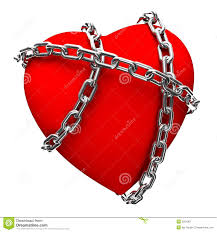

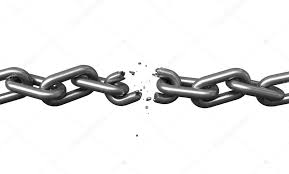
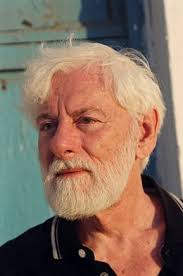

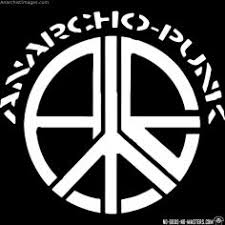

Leave a Reply